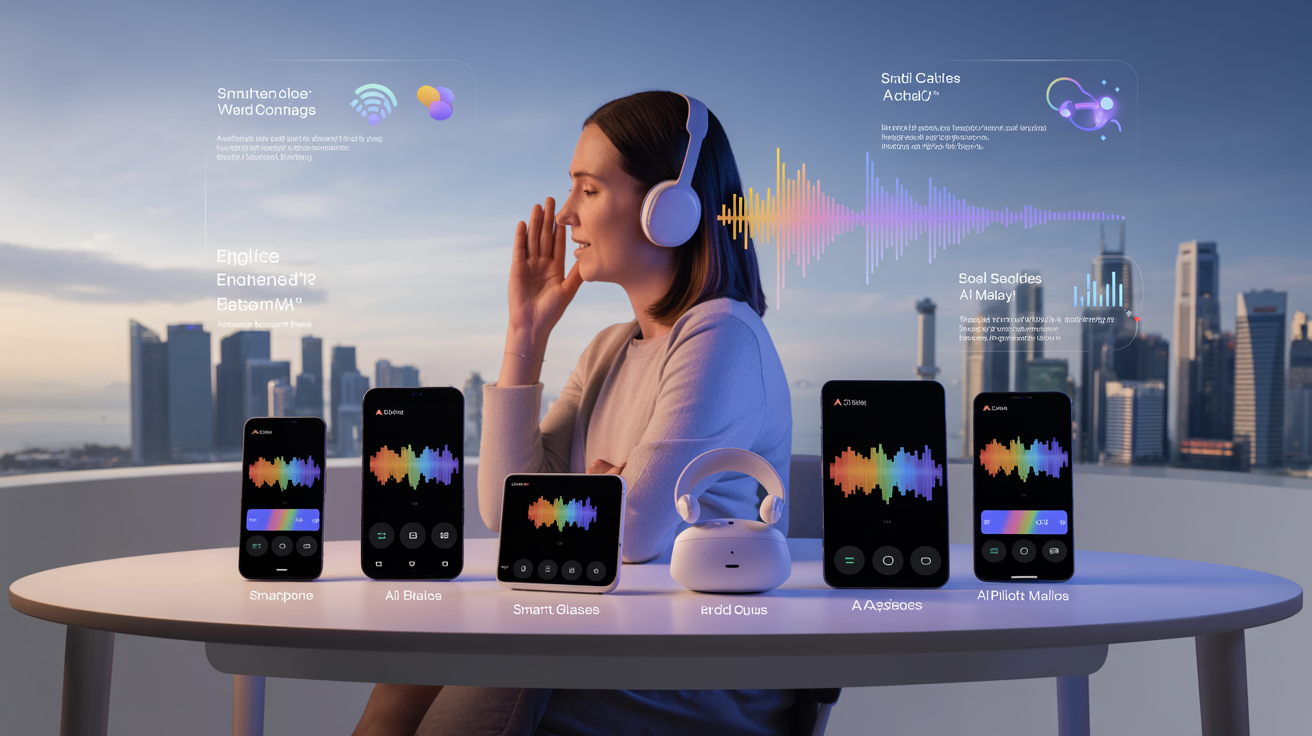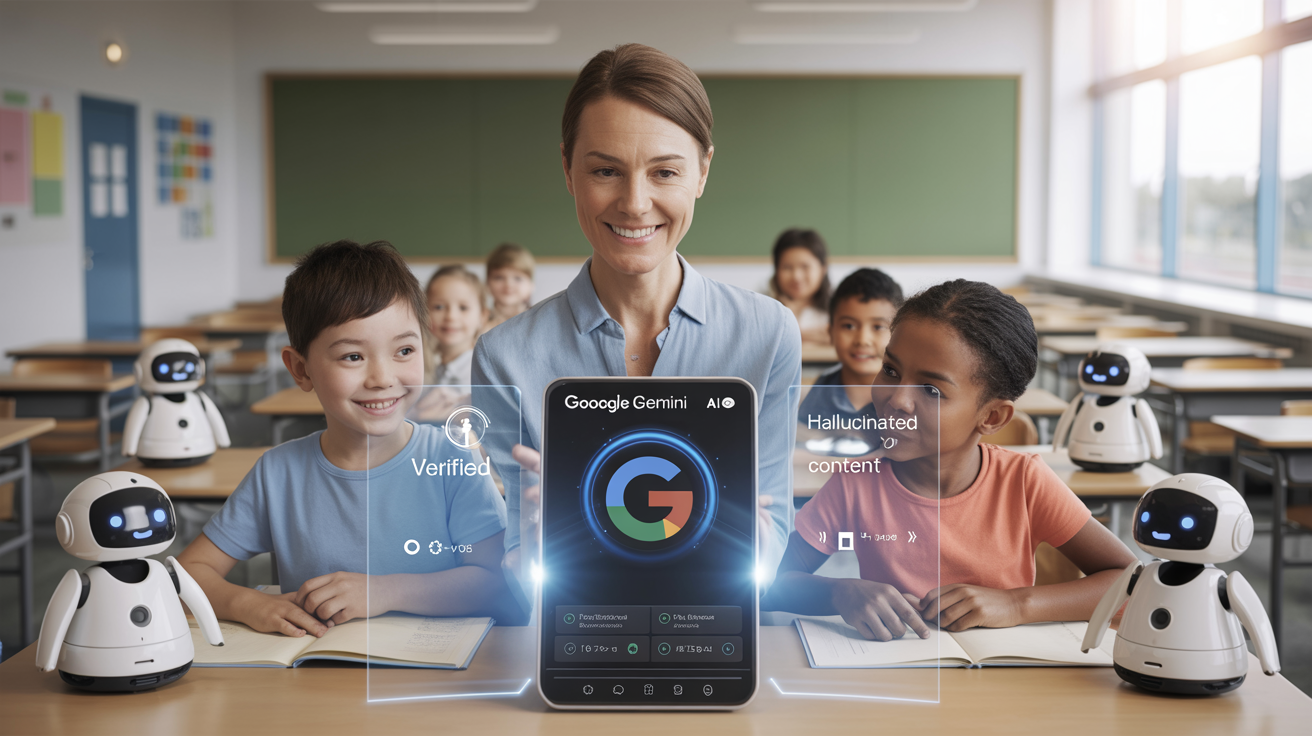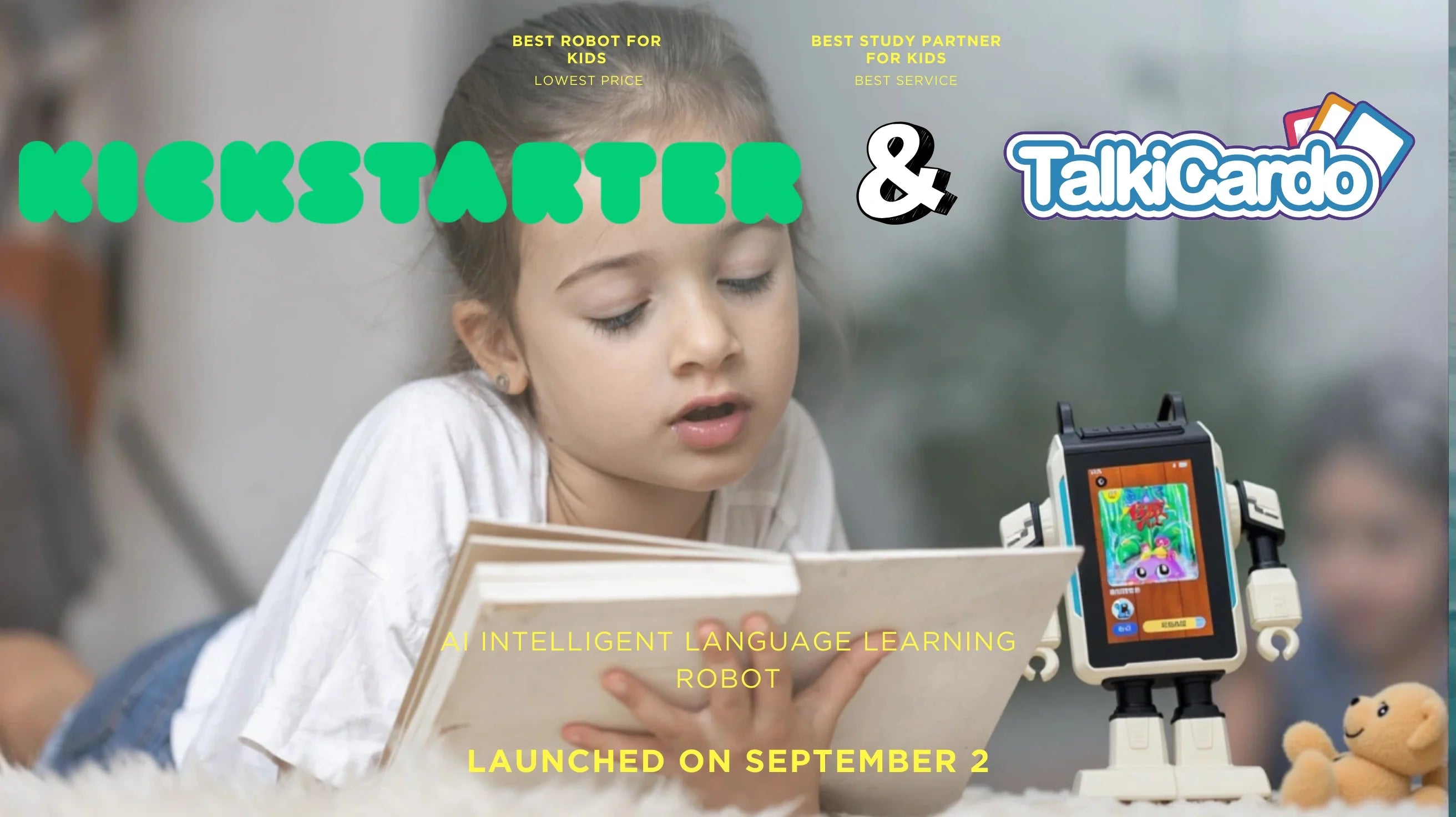
PSLE Oral Hacks: How AI Robots Transform Daily Speaking Practice Drills
Posted by Aipilot on
Table Of Contents
- Introduction: The PSLE Oral Challenge
- Understanding the PSLE Oral Examination
- Challenges of Traditional Oral Practice Methods
- How AI Robots Transform Oral Practice
- Creating an Effective Daily Drill System
- Practical Implementation Guide for Parents
- Measuring Progress and Adjusting Practice
- Psychological Benefits: Building Confidence Through AI Practice
- Conclusion: Embracing AI-Powered Learning for PSLE Success
In Singapore's competitive education landscape, the Primary School Leaving Examination (PSLE) represents a significant milestone in a child's academic journey. Among its components, the oral examination often creates unique anxiety for students and parents alike. Unlike mathematics or science, oral communication skills cannot be mastered through traditional workbooks or assessment books alone—they require consistent practice, meaningful feedback, and opportunities for improvement in a supportive environment.
Many parents find themselves struggling to provide adequate oral practice opportunities. Between busy work schedules and limited resources, establishing a consistent practice routine becomes challenging. This is where innovative technology offers a transformative solution: AI-powered speaking practice robots that can revolutionize how students prepare for their PSLE oral examinations.
In this comprehensive guide, we'll explore how incorporating AI robots into daily practice drills can dramatically enhance your child's oral communication skills, boost their confidence, and prepare them effectively for the PSLE oral component. From understanding the examination format to implementing practical AI-assisted practice routines, we'll provide actionable strategies that make preparation both effective and engaging.
AI-Powered PSLE Oral Practice Revolution
How AI robots transform daily speaking drills into confident communication skills
The Challenge
- Inconsistent practice opportunities
- Limited constructive feedback
- Emotionally charged practice sessions
- Lack of varied conversation partners
AI Robot Advantages
- 24/7 availability for consistent practice
- Objective, data-driven feedback
- Judgment-free learning environment
- Diverse practice scenarios
Daily Drill System for PSLE Success
Weeks 1-2
Pronunciation & articulation drills with immediate feedback
Weeks 3-4
Expressive reading practice focusing on intonation & pacing
Weeks 5-6
Basic conversation practice with familiar topics
Weeks 7-8
Advanced stimulus-based discussions simulating exam format
Implementation Tips
- Create a dedicated, quiet practice space
- Schedule consistent 15-20 minute daily sessions
- Review AI analytics weekly to track progress
- Balance technology time with real conversations
Psychological Benefits
- Reduces performance anxiety through desensitization
- Builds positive speaking identity and confidence
- Develops autonomous learning skills
- Provides emotional support during practice
Ready to Transform Your Child's PSLE Oral Preparation?
Discover how AIPILOT's innovative AI solutions like TalkiCardo can create consistent, engaging practice routines.
Explore AIPILOT Solutions© AIPILOT - Revolutionizing PSLE preparation with AI technology
Understanding the PSLE Oral Examination
Before diving into practice strategies, it's essential to understand exactly what the PSLE oral examination entails. The oral component typically consists of two sections: Reading Aloud and Stimulus-based Conversation. In the Reading Aloud section, students must demonstrate clear pronunciation, appropriate intonation, and expressive reading of a passage. The Stimulus-based Conversation requires students to engage in a discussion about a picture or video, showcasing their ability to express ideas coherently, respond to questions, and maintain a conversation.
Examiners evaluate students based on several criteria including pronunciation and articulation, expressiveness, fluency, and the ability to organize thoughts logically. These skills require not just knowledge of the language, but confidence in using it—something that develops only through regular practice and constructive feedback.
The Ministry of Education (MOE) emphasizes that the oral examination assesses a student's ability to communicate effectively in real-life situations, not just recite memorized answers. This practical focus means preparation must go beyond rote learning to include interactive conversations that build genuine communication skills.
Challenges of Traditional Oral Practice Methods
Traditional approaches to oral practice often fall short in several key areas:
Inconsistent Practice Opportunities
Most families struggle to maintain regular practice schedules due to busy parent work schedules and competing priorities. When practice does occur, it's often concentrated in the weeks just before the examination—too late for developing true fluency and confidence.
Limited Feedback Mechanisms
Parents may not be equipped to provide specific, constructive feedback on pronunciation, intonation, and language use. Even when working with tutors, feedback sessions are limited to scheduled lesson times rather than being available during daily practice.
Emotional Dynamics
Practice sessions between parents and children can become emotionally charged, especially when anxiety about the examination runs high. Children may become defensive or discouraged when receiving criticism from parents, creating a negative practice environment that hinders progress.
Lack of Varied Conversation Partners
Students benefit from practicing with different conversation partners who present varied speaking styles, question types, and discussion approaches. Traditional practice methods typically limit students to the same few conversation partners, narrowing their adaptability.
These challenges highlight why many students arrive at their PSLE oral examination feeling underprepared despite having invested time in practice. The traditional approach simply doesn't provide the consistency, quality feedback, and positive practice environment necessary for optimal skill development.
How AI Robots Transform Oral Practice
AI-powered speaking practice robots represent a significant advancement in educational technology, addressing the limitations of traditional practice methods while creating new opportunities for skill development. Here's how these innovative tools are changing the landscape of PSLE oral preparation:
Consistent Daily Practice
AI robots like TalkiCardo provide 24/7 availability for practice, eliminating scheduling constraints. Students can engage in short, focused practice sessions daily—the ideal approach for developing language fluency and confidence. This consistent practice creates the repetition necessary for neural pathways to develop, helping speaking skills become more automatic and natural.
Personalized Feedback
Advanced AI systems can analyze speech patterns, identifying specific areas for improvement in pronunciation, intonation, grammar, and vocabulary usage. Unlike human feedback which may be subjective or inconsistent, AI feedback is objective and consistent, focusing on measurable aspects of oral communication while tracking improvements over time.
Emotionally Supportive Environment
AI robots create a judgment-free practice environment where students can make mistakes without embarrassment. This psychological safety is crucial for language learning, as it encourages experimentation and risk-taking with new vocabulary and complex sentence structures. AIPILOT's solutions prioritize learners' psychological well-being by providing emotional support throughout the learning journey.
Diverse Practice Scenarios
AI platforms can simulate a wide range of conversation topics and scenarios, exposing students to varied speaking situations. This diversity prepares students for the unpredictability of the actual examination, where they must respond to unfamiliar stimuli or questions. AIPILOT's platform features immersive role-playing with AI characters, creating engaging and varied practice opportunities.
Data-Driven Improvement
AI systems track performance over time, identifying patterns and areas for focused practice. This data-driven approach allows for targeted improvement rather than generic practice, making preparation more efficient and effective. Parents and students can review progress reports to understand improvement trajectories and adjust practice strategies accordingly.
By leveraging the capabilities of AI technology, these robots transform oral practice from an occasional, potentially stressful event into a consistent, supportive, and highly effective learning process that builds skills systematically over time.
Creating an Effective Daily Drill System
The key to PSLE oral success lies in establishing a systematic approach to practice that builds skills progressively while maintaining student engagement. Here's how to create an effective daily drill system using AI robots:
Structured Short Sessions
Research in language acquisition shows that frequent, shorter practice sessions are more effective than occasional lengthy ones. Aim for 15-20 minute sessions daily rather than hour-long sessions weekly. AI robots make this approach practical by being always available for these brief, focused interactions without requiring scheduling or preparation.
Progressive Skill Building
Effective practice follows a logical progression from basic to complex skills:
Week 1-2: Focus on pronunciation and articulation drills, having the AI robot provide immediate feedback on specific sounds that Singaporean students typically struggle with.
Week 3-4: Progress to expressive reading practice, where the AI guides students in using appropriate intonation, stress, and pacing when reading passages.
Week 5-6: Introduce basic conversation practice around familiar topics, helping students develop comfort with responding to questions and expressing simple ideas.
Week 7-8: Advance to stimulus-based discussions similar to the actual examination format, where students must interpret visual information and engage in more complex conversations.
Varied Practice Materials
Diversify practice materials to prevent boredom and build adaptability. TalkiCardo offers various conversation topics and reading passages that can be rotated throughout the week. This variety not only maintains engagement but also prepares students for the unpredictability of the examination.
Deliberate Practice of Weak Areas
Use the AI's analytical capabilities to identify specific weaknesses in your child's oral communication, then dedicate specific sessions to addressing these areas. This targeted approach is far more effective than generic practice and leverages the data-driven advantages of AI technology.
Recording and Self-Assessment
Many AI platforms allow students to record their practice sessions and review them later. This self-assessment component is powerful for developing metacognitive awareness of speaking habits and areas for improvement. Students can compare their current performance with past recordings to visualize their progress, building confidence and motivation.
This systematic approach transforms random practice into a structured learning journey that builds skills logically and measurably. By leveraging AI technology, parents can implement this system without requiring expertise in language education or committing to unsustainable time commitments.
Practical Implementation Guide for Parents
Implementing an AI-powered practice system requires some planning and structure. Here's a practical guide for parents:
Selecting the Right AI Tool
Choose an AI solution specifically designed for language learning and oral practice. TalkiCardo from AIPILOT is particularly well-suited for PSLE preparation as it integrates software and hardware components designed specifically for educational contexts. Look for features like speech recognition accuracy, age-appropriate content, and progress tracking capabilities.
Setting Up a Practice Space
Create a dedicated practice area that's quiet and free from distractions. This physical space helps signal to your child that it's time for focused practice and creates consistent conditions for optimal voice recognition by the AI system. Consider using AI Mouse which integrates voice control, making the practice experience seamless and intuitive for children.
Establishing a Routine
Consistency is crucial for skill development. Set a specific time each day for oral practice—perhaps immediately after school or after dinner. By establishing this routine, practice becomes a non-negotiable part of the daily schedule rather than an occasional activity that's easily skipped.
Parent Involvement Balance
While AI robots reduce the need for constant parent supervision, some parental involvement remains valuable. Consider this balanced approach:
Daily: Brief check-ins to ensure the practice is happening and to provide encouragement.
Weekly: Review progress reports generated by the AI system to understand improvement areas.
Bi-weekly: Sit in on a complete practice session to observe firsthand and provide supplementary feedback or encouragement.
Supplementing AI Practice
While AI robots provide excellent daily practice, supplement this with occasional real-world conversation practice. Family discussions, interactions with relatives, or conversation groups at school all provide valuable diversity in speaking experiences. The AI Teaching Assistant can help bridge the gap between robot practice and classroom learning, creating a comprehensive preparation approach.
Managing Technology Time
Balance AI practice with overall screen time management. Since AI robots combine technology with educational value, allocate a specific technology allowance for this practice separate from entertainment screen time. This approach recognizes the educational value while maintaining healthy technology boundaries.
By implementing these practical strategies, parents can create a sustainable, effective practice system that doesn't add significant burden to busy family schedules while providing substantial benefits for PSLE preparation.
Measuring Progress and Adjusting Practice
Effective preparation requires ongoing assessment and adjustment. Here's how to track progress and refine your approach:
Leveraging AI Analytics
Quality AI platforms provide detailed analytics on various aspects of speaking performance. Review these metrics regularly to understand your child's improvement trajectory in areas such as:
- Pronunciation accuracy percentages
- Speaking pace and fluency measurements
- Vocabulary diversity and complexity
- Sentence structure sophistication
- Hesitation frequency and duration
These objective measurements provide insights that might be missed through casual observation alone.
Periodic Formal Assessments
Every 4-6 weeks, conduct a more formal assessment that simulates actual examination conditions. AIPILOT's systems can be configured to provide these assessment experiences, generating comprehensive reports that compare current performance with previous assessments. These milestone checks provide clear evidence of progress and highlight any areas requiring additional attention.
Adjusting Practice Focus
Based on analytics and assessment results, periodically adjust your practice strategy. If pronunciation has improved significantly but conversation fluency remains challenging, shift more practice time to spontaneous discussion exercises. This data-driven approach ensures practice remains targeted to current needs rather than following a generic plan.
Celebrating Milestones
Recognize and celebrate improvement milestones to maintain motivation. When analytics show significant progress in a particular area, acknowledge this success with specific praise and perhaps a small reward. This positive reinforcement builds confidence and sustains engagement with the practice routine.
The combination of objective AI-generated data and periodic structured assessments creates a comprehensive progress monitoring system that guides practice adjustments while building confidence through visible improvement.
Psychological Benefits: Building Confidence Through AI Practice
Beyond the technical aspects of oral communication, AI practice offers significant psychological benefits that contribute directly to examination success:
Reducing Performance Anxiety
Many students underperform in oral examinations not due to skill deficits but because of anxiety. Regular practice with AI robots gradually desensitizes students to the speaking process, reducing the stress response during actual examinations. The judgment-free nature of AI interaction allows students to make mistakes without embarrassment, building resilience and comfort with the speaking process.
Building Speaking Identity
Through consistent practice, students develop what linguists call a "speaking identity"—a confident self-concept as someone who can communicate effectively. This identity development is crucial for natural, confident expression during examinations. AIPILOT's systems are designed with this psychological dimension in mind, providing encouraging feedback that builds this positive speaking identity.
Developing Autonomous Learning Skills
The structure of AI practice encourages students to take ownership of their learning process, reviewing feedback and making adjustments independently. This development of metacognitive skills and learning autonomy extends beyond oral preparation to benefit overall academic development. Students learn to identify their own strengths and weaknesses and take initiative in addressing improvement areas.
Creating Emotional Support
AIPILOT's AI solutions prioritize learners' psychological well-being by providing emotional support throughout the learning journey. The AI can recognize signs of frustration or discouragement and adjust its approach accordingly, offering encouragement or simplifying exercises temporarily to rebuild confidence. This emotional intelligence creates a supportive learning environment that sustains motivation.
These psychological benefits complement the technical skill development, creating well-rounded preparation that addresses both the knowledge and confidence components necessary for PSLE oral success. By attending to both dimensions, AI-powered practice creates truly comprehensive preparation.
Conclusion: Embracing AI-Powered Learning for PSLE Success
The PSLE oral examination represents not just an academic challenge but an opportunity for students to develop communication skills that will serve them throughout their educational journey and beyond. Traditional preparation methods, while well-intentioned, often fall short in providing the consistent, personalized practice environment necessary for optimal skill development.
AI robots like TalkiCardo from AIPILOT transform this preparation process by creating daily practice opportunities with immediate feedback, data-driven improvement strategies, and a supportive learning environment. This technology bridges the gap between occasional tutoring and the consistent practice needed for true mastery.
By implementing a structured daily drill system powered by AI technology, parents can provide their children with comprehensive oral preparation that builds both technical skills and psychological readiness. The combination of consistent practice, objective feedback, and confidence-building support creates a powerful preparation approach that addresses all dimensions of oral examination success.
As Singapore's education landscape continues to evolve, embracing innovative learning technologies becomes increasingly important for students seeking to excel. AI-powered oral practice represents not just a preparation strategy for a single examination, but an investment in communication skills that will benefit students throughout their academic careers and professional lives.
Begin your child's journey toward PSLE oral confidence today by exploring how AIPILOT's innovative AI solutions can transform daily practice into a powerful preparation advantage.
Ready to Transform Your Child's PSLE Oral Preparation?
Discover how AIPILOT's innovative AI solutions can create consistent, engaging, and effective daily practice routines that build confidence and communication skills.
Explore AIPILOT Solutions Today

















































